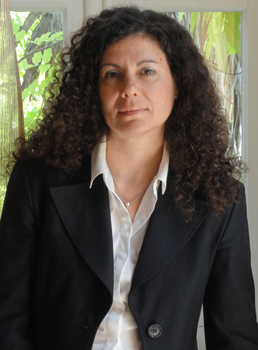
Pothiti Hantzaroula
At the University of the Aegean in Greece, Pothiti Hantzaroula says IWitness helps her students understand the impact of the Holocaust on their own lives and the lives of others.
Hantzaroula is a historian specializing in the Holocaust and post-war reconstruction of Jewish communities in Greece. At the University of Thessaly, she was part of a research program that created the database “From Between the Wars to Reconstruction (1930-1960) – The Experience of the Jews of Greece in Audio-Visual Testimony.” The database includes 1,552 audiovisual testimonies from a variety of archives including USC Shoah Foundation’s Visual History Archive.
She currently teaches an undergraduate seminar course in the Department of Social Anthropology and History at the University of the Aegean titled “Memory, History, Representation in the Second World War: The Destruction of the Jews of Europe.” IWitness is an important part of her teaching.
“The material created by IWitness helps to assign a name and a story to the people who suffered and survived,” Hantzaroula said. “Besides, the use of survivors’ testimonies makes possible a historical perspective that does not reproduce the conceptual categories of the Nazis.”
Hantzaroula’s students watch testimonies in IWitness in order to compare different experiences of survivors in Europe, the impact of Nazi policies and discrimination, and the chronology of the Holocaust in different countries. Students also consider the methodological and theoretical issues at play in the use of oral testimonies.
The testimonies help students reflect on how the perspectives of survivors can affect the production of history, Hantzaroula said.
“It also becomes possible to discuss questions of traumatic experiences and emotions,” she said. “They realize the multiplicity of experiences and how it felt to have lived in a ghetto or to have survived from a concentration camp and how these experiences have shaped their lives and subjectivities.”
She added that not only does IWitness help students learn the impact of hatred and discrimination on real people and communities, it also teaches them that anti-Semitism is not a subject they can ignore.
“They realize that we cannot close anymore our eyes on discrimination and anti-Semitism, since they become aware that its consequences involve each one’s responsibility and stance,” she said.